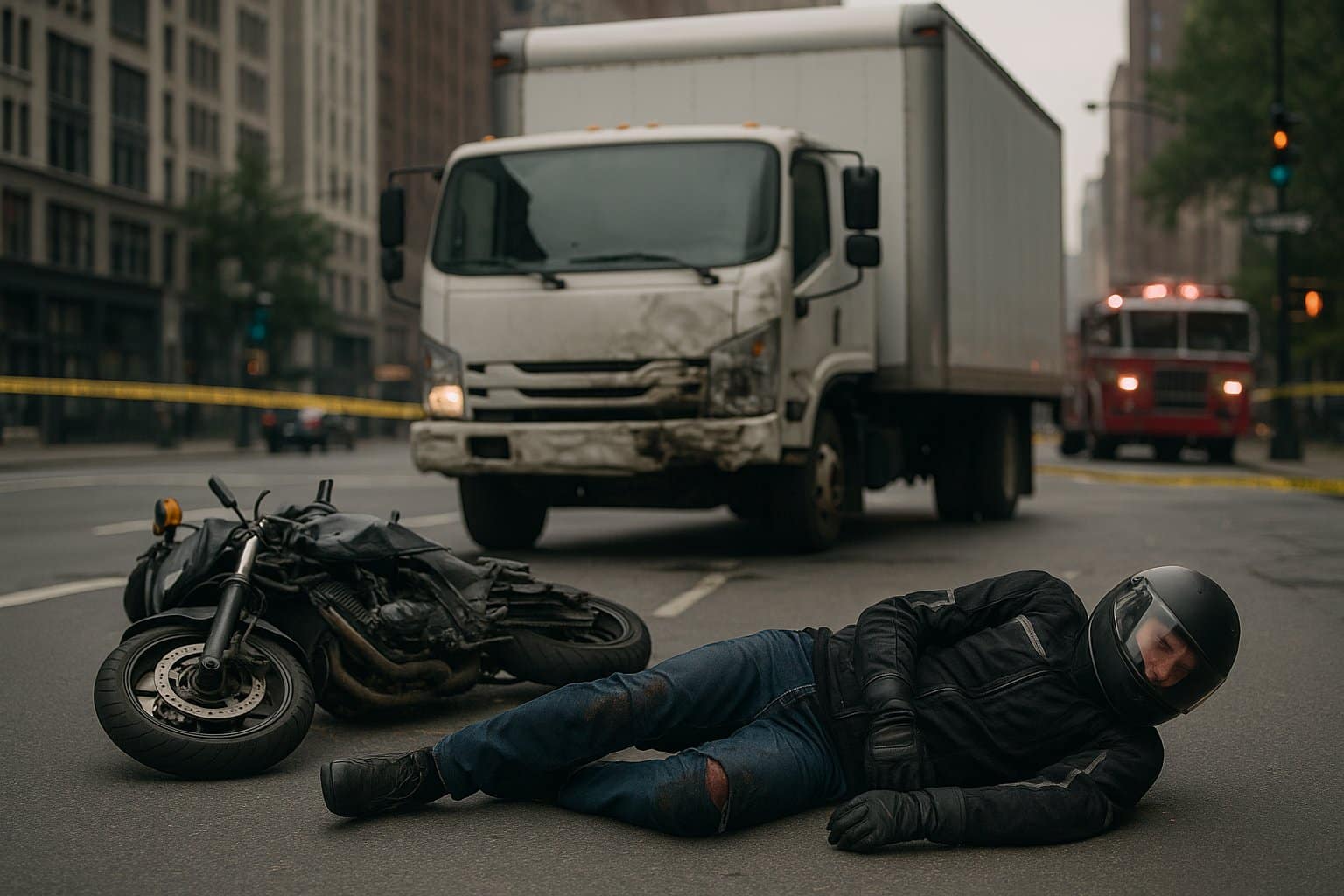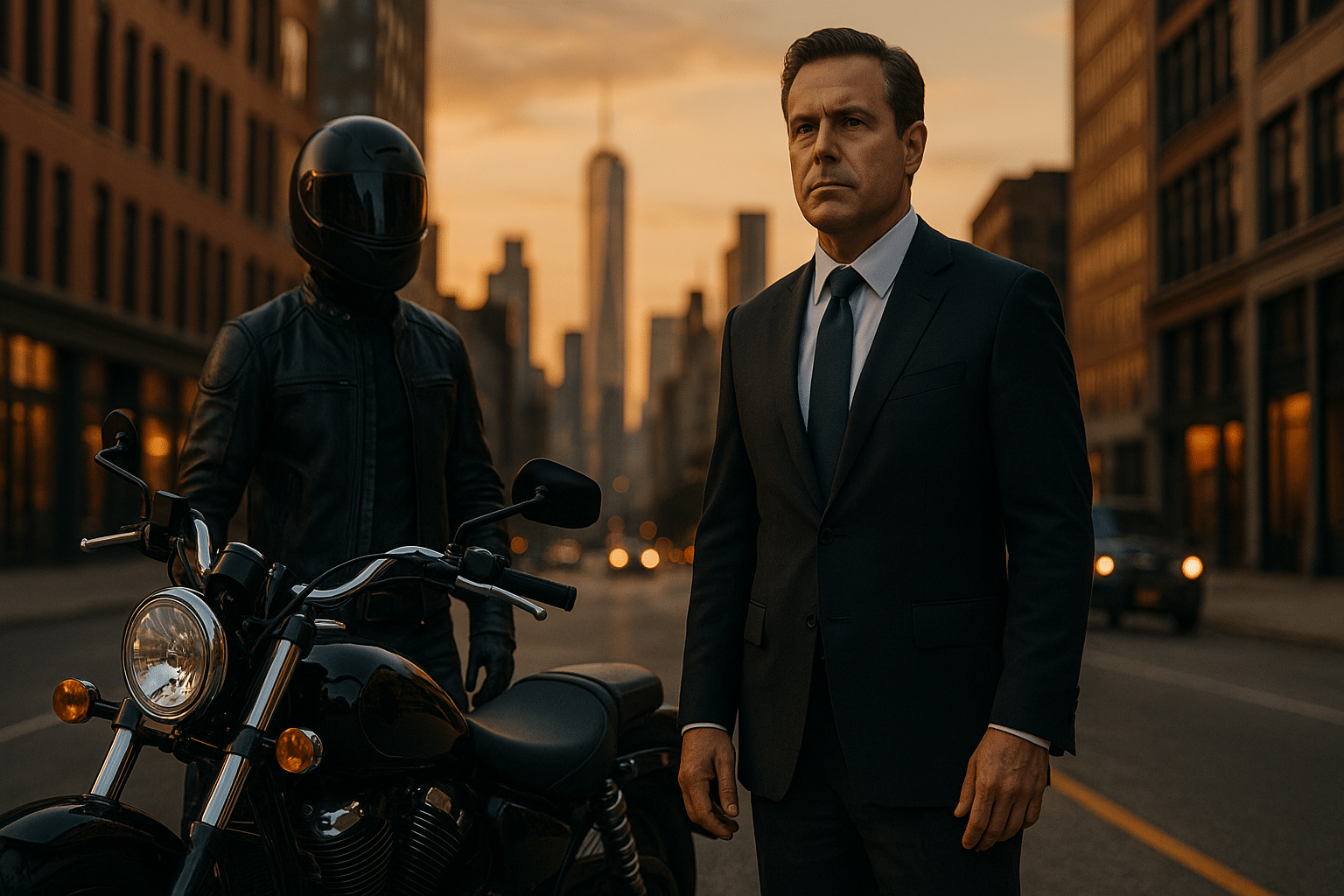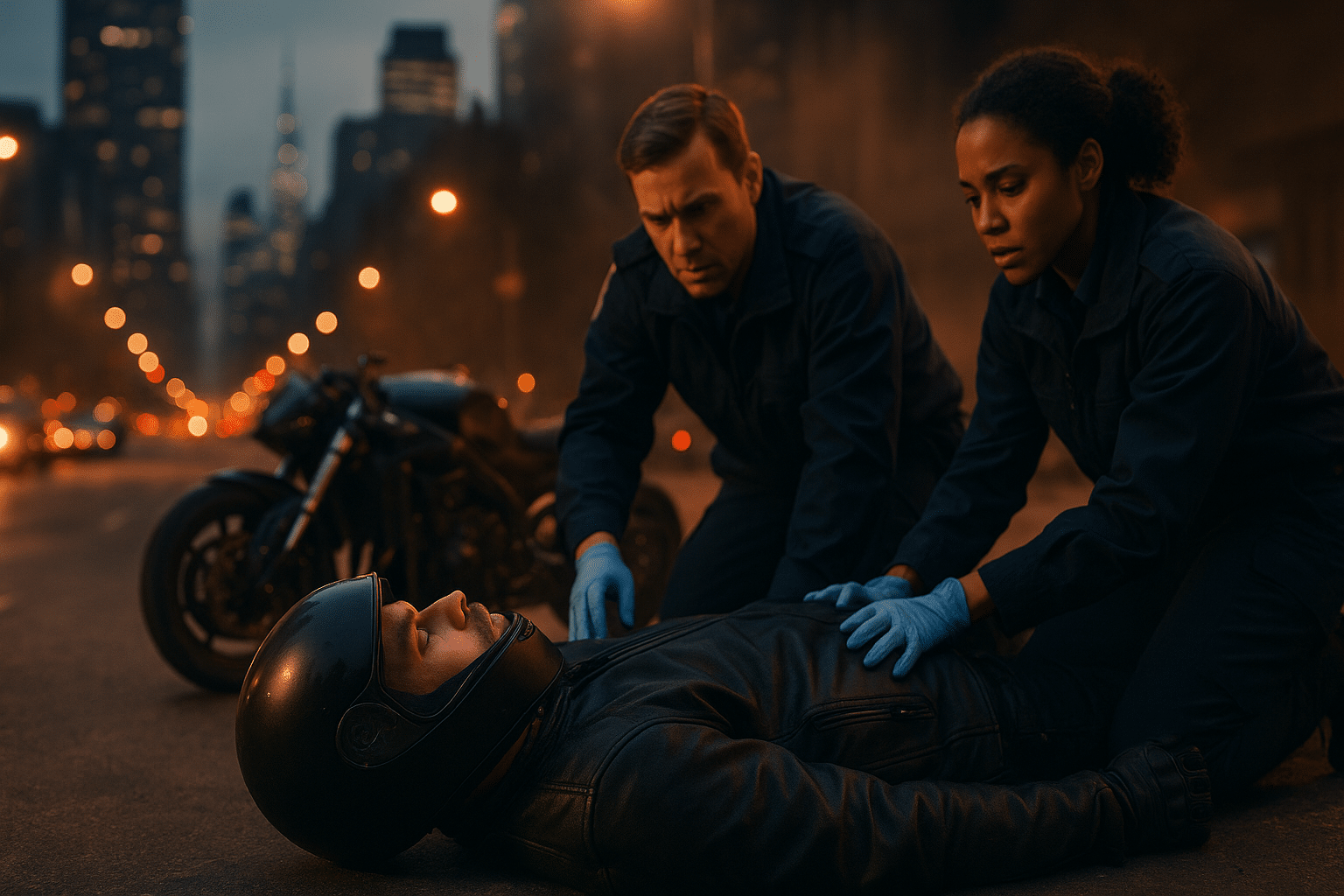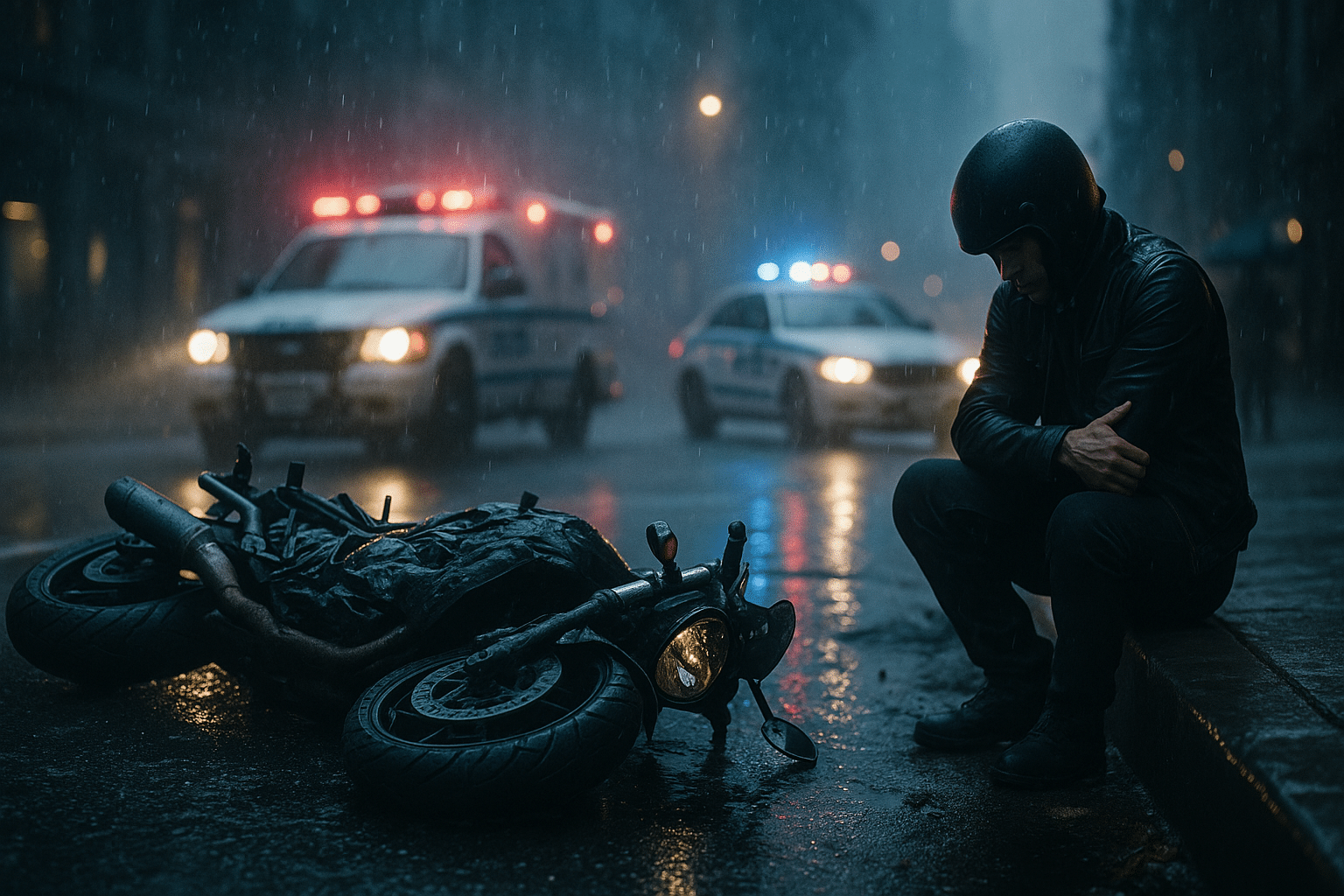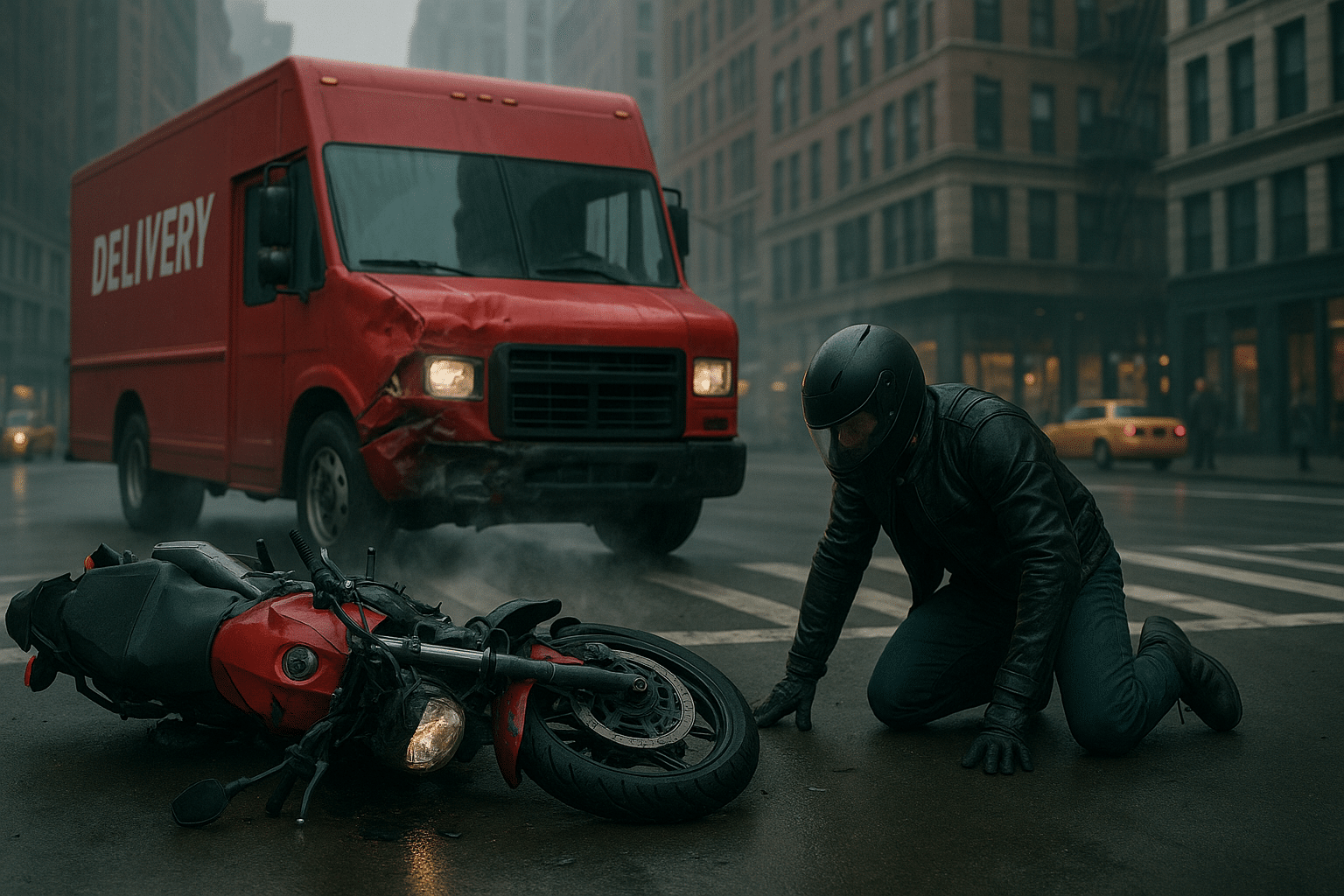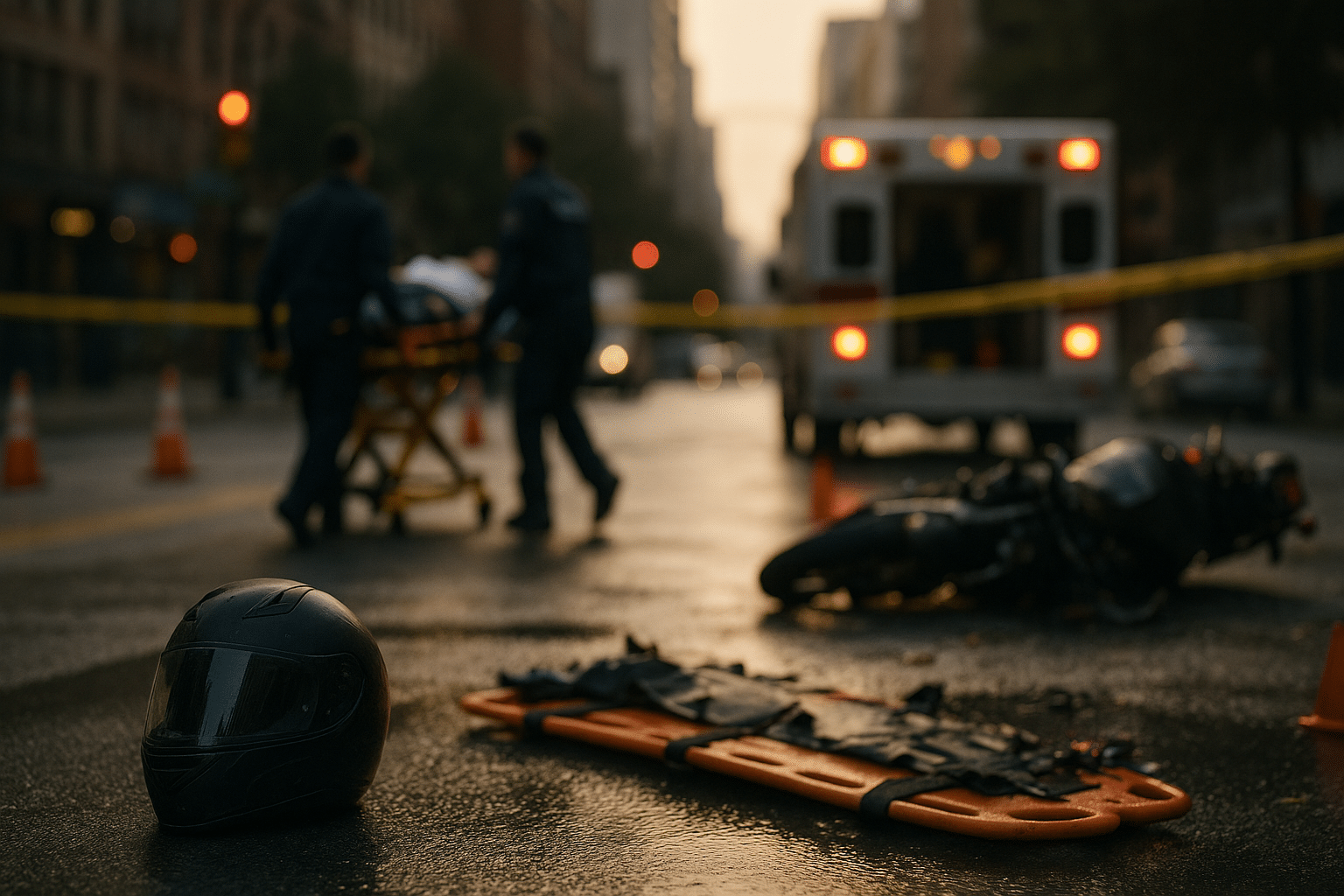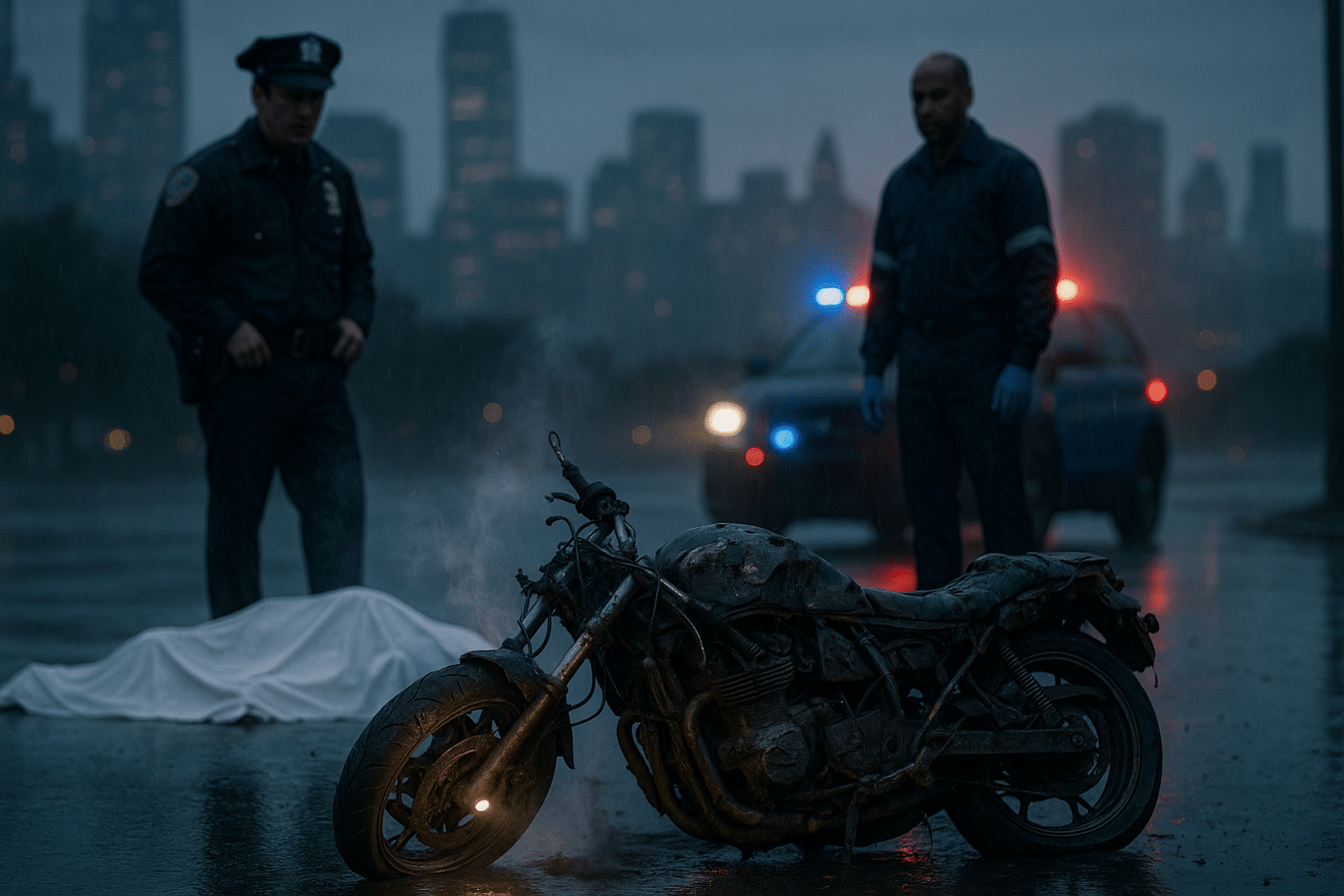Motorcycle accidents are traumatic enough on their own—but when a commercial vehicle is involved, the consequences can be far more severe. Whether it’s a delivery van, a cargo truck, or a company SUV, these vehicles are heavier, harder to maneuver, and often operated under time pressure. The result? Greater risk and more complex legal questions.
If you were injured in a motorcycle accident involving a commercial vehicle, understanding who is responsible is the first step toward getting the compensation you deserve.
Table of Contents
We return our clients’ phone calls. We are available 24/7, 365 days a year. I give out my personal cell phone number to all my clients, and I tell them they can feel free to contact me at any time. That’s what makes us different.
—Mitchell Proner
Why Are These Accidents More Complicated?
Commercial vehicles are usually operated by drivers working for a company. This means multiple parties could share legal responsibility, such as:
- The commercial vehicle driver
- The company that owns the vehicle
- External maintenance contractors
- The manufacturer (if mechanical failure was involved)
That’s why these cases are often more legally complex than standard vehicle accidents.
Common Causes of Accidents Between Motorcycles and Commercial Vehicles
Some of the most frequent causes include:
- Driver fatigue (common in long-haul or delivery driving)
- Blind spot collisions
- Wide turns or unsafe lane changes
- Driver distractions (GPS, cell phones, etc.)
- Faulty brakes or mechanical issues
- Unsecured cargo falling onto the road
These crashes tend to be severe due to the size and weight of commercial vehicles. For motorcyclists, even a low-speed impact can be devastating.
With 30 years of experience winning top settlements, we know how to deal with insurance companies and the legal system. You’re in the best hands with us.
—Mitchell Proner
Who Is Liable? How Fault Is Determined
Liability is generally based on negligence—proving that someone acted carelessly or failed to meet basic safety standards.
The Commercial Driver
If the driver was speeding, distracted, or breaking traffic laws, they may be considered at fault. However, if they were on the job, their employer could also be held liable under the law.
The Employer
A company may be liable if:
- The driver was acting within their job duties
- The driver was not properly trained
- The vehicle was poorly maintained
Other Third Parties
Liability can also fall on:
- Maintenance contractors who failed to service the vehicle properly
- Freight companies that secured cargo improperly
Manufacturers of defective parts
What Evidence Helps Prove Fault?
An experienced motorcycle accident attorney can help gather:
- Police reports
- Surveillance or dashcam footage
- Vehicle maintenance records
- Eyewitness statements
- Driving logs and company policies
Acting quickly is essential to preserve evidence, especially when companies and their insurers get involved early.
How Can a Specialized Attorney Help?
Accidents involving commercial vehicles mean dealing with corporate insurers, legal teams, and complex negotiations. Going it alone could cost you both rights and money.
A qualified attorney can:
- Investigate all responsible parties
- Apply relevant state and federal transportation regulations
- Negotiate with insurance companies on your behalf
Fight for the maximum possible compensation
What Compensation Could You Receive?
If the driver or their company is found liable, you may be entitled to:
- Medical expenses (present and future)
- Lost wages
- Property damage (motorcycle, gear)
- Rehabilitation or long-term disability
- Wrongful death compensation (if applicable)
What to Do After the Accident
- Call 911 and get medical attention
- Take photos and note license plates and company names
- Get witness contact information
- Do not speak with or sign anything from the insurer without a lawyer
Consult a motorcycle accident attorney as soon as possible
FAQ
Yes, although it may affect the compensation amount. Speak with a lawyer to evaluate your specific case.
New York follows a “comparative negligence” rule, meaning you can still receive compensation even if you were partly responsible.
In New York, you generally have up to 3 years to file a personal injury claim. The sooner you act, the better your chances of success.

